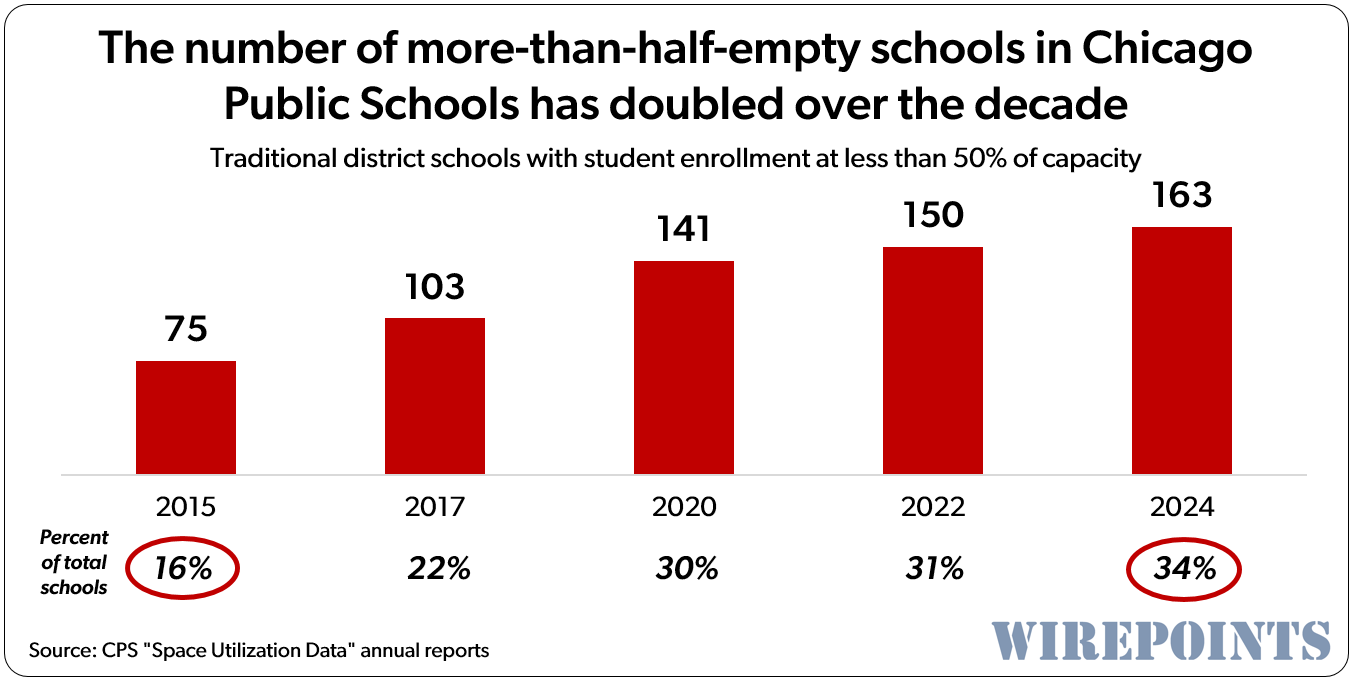Even under the new accounting standards, Chicago’s police and fire pensions are using a single discount rate of about 7.1%, though both are under 25% funded.
By: Mark Glennon*
The public pension world mostly cheered the arrival of new pension reporting standards from GASB — the Governmental Accounting Standards Board. A meaningful step towards more realistic reporting on pension deficits seemed here.
In particular, a central problem has been that pensions typically assume very high rates of return on investments they hold, which have been widely criticized as unrealistic. That number has a massive impact on the reported health of pensions, so overly optimistic return assumptions have hidden the severity of the public pension crisis. Forcing actuaries and accountants to use a lower return was widely seen as the most important change in the new GASB standards. While the funded portions of pension liabilities continue to use the assumption selected by pension trustees, the unfunded portion must be discounted at a much lower rate — at least that’s how the new standards were often summarized. We’ve said it that way on this site, too.
Wrong. The new standards have failed. They don’t work reliably. Chicago’s police and firefighter pensions show why.
It seemed commendable, at first blush, when Chicago used the new standards to report “Net Pension Liability” in its midyear financial report widely discussed last week. It shows the police and fire pensions as $8.97 billion and $3.78 billion in the hole, respectively.
But if you thought that calculation was made using a discount rate much lower than the typical 7.5%, you’d be wrong. You have to look at the separate actuarial reports detailing the numbers under the new GASB rules. I could only get those through a Freedom of Information Act request (though the police pension subsequently posted theirs). Both pensions ended up using a single, blended discount rate that’s also clearly unrealistic — 7.15% for the police pension and 7.16% for the firefighter pension — to discount liabilities. What’s the justification for discounting liabilities pensions will face at that rate, even the portion that’s not funded by assets on hand? None. It’s safe to say that no reputable financial economist would defend the practice.
Chicago has two other pensions. The actuary for the municipal employees’ pension, MEABF, used a single rate of just 3.73%, even though it, too, is horribly underfunded — just 20%. The actuary for the smaller Laborer’s pension used 4.04%. It’s 33% funded.
Why such vastly different assumptions for the police and fire pensions? I have yet to get a full picture of that, even after talking to several actuaries. I’m giving the benefit of the doubt to the police and fire actuary that they followed the book on the new standards, but does that really matter? This has already gotten far more obscure than than reporters, the public and officeholders can be expected to follow. Unquestionably, there’s no economic justification for the difference that’s apparent and defensible.
The bottom line is that, if you think you can presume pension debt is more realistically reported under the new standards, you’ve been duped.
We’ve criticized actuaries on this site often, but it’s time to put the spotlight on accountants, too. The GASB standards are accounting standards. They show up not just in actuarial reports but also in financial statements for municipalities. In the actuary profession, at least there’s a reformist insurgency afoot and some reformers are making their criticisms public as best as they can. Some of the honest ones have written here on this site or answered my questions candidly when I need help writing on the subject. Many thanks to them.
Accountants hired by governmental units with pensions need to get on the reform train, too. Ultimately, their primary job is supposed to be producing financial statements that fairly present the financial condition of the governmental units they report on. They’re not doing it. Blame that profession for helping cover up a $5 trillion national financial crisis that’s gradually destroying hundreds of governments across the country.
*Mark Glennon is founder of WirePoints. Opinions expressed are his own.


 A set of state lawmakers want to extend CPS’ current school closing moratorium to February 1, 2027 – the same year CPS is set to transition to a fully-elected school board. That means schools like Manley High School, with capacity for more than 1,000 students but enrollment of just 78, can’t be closed for anther three years. The school spends $45,000 per student, but just 2.4% of students read at grade level.
A set of state lawmakers want to extend CPS’ current school closing moratorium to February 1, 2027 – the same year CPS is set to transition to a fully-elected school board. That means schools like Manley High School, with capacity for more than 1,000 students but enrollment of just 78, can’t be closed for anther three years. The school spends $45,000 per student, but just 2.4% of students read at grade level. Hopefully, all media will get the message, in Illinois, too.
Hopefully, all media will get the message, in Illinois, too. Ted joined Tom Miller of WJPF to talk about Illinois’ highest-in-the-nation property taxes, why lawmakers don’t want to touch the tax’s cost drivers, just how much Illinoisans’ tax burden has grown over the decades, why Gov. Pritzker failed to meet his promise to reform property taxes, and more.
Ted joined Tom Miller of WJPF to talk about Illinois’ highest-in-the-nation property taxes, why lawmakers don’t want to touch the tax’s cost drivers, just how much Illinoisans’ tax burden has grown over the decades, why Gov. Pritzker failed to meet his promise to reform property taxes, and more.
One would expect that consistent use of too-high earnings or mortality assumptions would result in actuarial losses (the difference between predicted results and actual results). If recollection serves, those actuarial losses are supposed to be “amortized” — that is, contributions should be increased to make up for the difference. Have you noticed whether this is happening? One assumes it’s in the reports with nobody in a responsible position taking notice or doing anything.
Yes, absolutely. That’s a central point we’ve been trying to get across here. We’ve documented the numbers often. In years when they don’t make the target, the diference contributes to the unfunded liability. And aside from that, there’s implicit negative amortization in how most of the contributions are calculated. Virtually all state and municipal pensions in Illinois have unfunded liabilities that grow every year; nothing is being amortized. In the case of the state pensions, for example, another $3B to $3.5/year would be needed just to keep them even, even if they met their assumed rates of return. (Those calculations… Read more »
It is difficult to dispel the view that our legal structure (i.e. separation-of-powers, rule-of-law, reliance on opinions of experts, GASB rules, government regulations. etc.) has been wholly co-opted by villains motivated primarily by their own self-interest. Not the first or the last human contrivance to be co-opted, of course. I once asked a lawyer working in a nation that was “underserved” by lawyers “when would someone hire a lawyer in your country.” His answer was, in essence, when the problem can’t be solved by bribing a policeman or a bureaucrat or a politician, then you need to hire a lawyer… Read more »